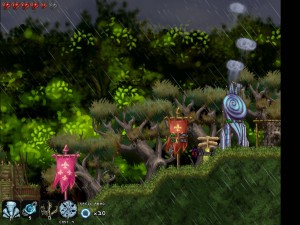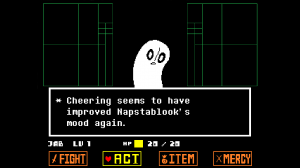There are many elements that go into successfully selling a video game for a designer to keep track of. However, there is one part that is completely out of their control: Who is reviewing the game? It’s time to talk about game reviewers; a topic that I’m sure will not get me in trouble with anyone.
Getting Your Voice Heard:
Game reviewing like a lot of aspects of the Game Industry has no set guidelines. Just as there is no set structure to making games, there are no rules for reviewing them. As long as you can write and play video games, it’s possible to review them.
Over the last 10 years, the barrier to game reviewing has disappeared thanks to the rise of bloggers and vloggers. WordPress and Blogspot both make it easy for someone to start writing about games. Right now, you can go on YouTube and see someone talk about almost any video game ever made.
And for the people who attract a following, chances are they’re going to get snatched up by a site to be official or freelance reviewers.
With the rise of Youtubers, you have big names able to influence consumers based on what they say about video games. Become popular enough as a game reviewer on YouTube, and you can become a celebrity in your own right.
While this is great for them, it does present a problem when it comes to credibility and a long-standing debate.
Standards of Reviewing:
In any other industry you need to have certain credentials to review products. Someone who reviews sports is usually a broadcaster or former player; people who studied film are critics and so on. This serves two points. One: It makes sure that the person reviewing has a background and knowledge base about the particular craft. And two: It gives them credibility beyond just people knowing who they are and watching their videos.
I think you can guess what the problem is with the Game Industry: What standards do we hold reviewers to? Someone who breaks down games can have as much as, or less credibility, than someone who just makes weird faces or screams at a camera while complaining about a game.
At this point in this post, let’s lay our cards on the table. There is no way I’m going to write this piece without coming off as elitist, and you know what?
I think at this point I’ve earned the right to be elitist. Over the last three + years, I’ve interviewed countless developers all over the world, and made posts examining the abstract nature of design and major industry issues; things most people don’t think about, much less cover.
I don’t need to rely on cheap gimmicks or skits to get my point across. Every time I hear or read a “professional reviewer” rant about how a game is stupid, I can feel my rage building. While I know my writing and acting abilities are still growing, there are a lot of game reviewers out there, Youtuber or other that I feel I am better than.
Being Professional:
Talking about reviewers brings up another popular debate: Should there be standards for game reviewers? That is a tricky question and one people don’t like talking about. The reason is that it’s part of another longstanding question: What is a Gamer?
People who are against standards will say that you can’t pigeonhole people based on their game taste, so you shouldn’t do that to reviewers. Except there is one big difference: One is a consumer, and the other is supposed to be an authority. I do think you should expect a level of professionalism and competency from the people looking at video games.
Just as you expect someone who reviews cars to understand how they are built, you should expect the person reviewing your game to be able to play it and go beyond just saying “This is fun/this sucks.”
I know people, especially reviewers, will point out that there are too many games to play and it’s hard to give everything a good look.
My answer to that is simple: Tough shit. If you want to call yourself a reviewer, than you have to give each game a fair look. All the more so if you are being paid; either through ad revenue/sponsors or on a game site.
For professional sites, that also means the person looking at the game should have some knowledge of the genre. You shouldn’t expect every game reviewer to be expert-level players, but they should still have enough skill to properly understand what’s going on. You wouldn’t let someone who only drives SUVs review the differences in motorcycles.
The state of game reviewing is a mis-mash of trying to listen to people who know what they’re talking about, over the ones who are the loudest or have the most likes on YouTube. And let’s not talk about sites propping themselves up be asking for free reviews from fans, as that’s another can of worms.
Now I know that a lot of people are getting ready to write nasty comments to the tune of: “They’re not hurting anyone, they’re just providing entertainment.” Without having standards, game reviewers are hurting the very people they’re supposedly fans of.
The Dark Side of Game Development:
For every big name success, AAA or otherwise, there are countless games that come and go faster than you can blink. Some of these games may have problems to them, while others could have been released at the wrong time and so on. Big names like Stardew Valley, Undertale and AAA games have so much word of mouth that everyone will hear of them.
For smaller games on the other hand, one review could mean the difference between their game breaking even or losing money. When you send your press codes out to reviewers, you have no idea what their skill level or knowledge of the industry is.

Many smaller studios struggle with getting coverage on their own, and have to rely on word of mouth to hopefully get noticed
There is a big difference when you have 1 negative review out of 50 vs. 1 out of 4. If you can’t get people to play your video game because it’s not a big enough name, you are in deep trouble.
As we’ve talked about, many game designers are not PR people; further increasing the difficulty of reaching out to reviewers.
I try to do my best to give every press copy I get a fair look. If I can’t give it the time it needs, then I’m not going to review it.
The reason is that a negative review is more damaging than no review at all to an Indie dev, and I want to make sure that I gave the game enough time before talking about it. One of the best things about doing videos as well as written pieces is the fact that I can explain some games better through video than through a written piece.
Going back to the concept of standards, someone who is knowledgeable on design should be able to talk about a game even if it’s not their preferred genre; what I talked about in my 7-9 review score argument.
The fact of the matter is that you have consumers being influenced by people with varying ranges of credibility and knowledge, and in turn, directly impacting the livelihood of game developers.
This also raises the issue of Youtubers requesting money to spotlight games on their channel. While this is a point for debate, it falls within the realm of advertising as something anyone can do and is a topic too big for this post.
Testing Reviewers:
As I said, I do think we need to come up with a standard for game reviewers. The problem of course is simple: What are those standards? While it’s hard to pick out exacts, I do have an idea of some broad guidelines.
A game reviewer should be able to look at a game from both the newcomer and hardcore experience; to provide viable information to anyone reading or watching.
They should be able to not only break down the good and bad parts of the game, but why they are good and bad.
A game reviewer must have an understanding of how game development and the process of game design works. They should be able to talk objectively, not rant or rave about something being awesome or stupid.
And because I haven’t pissed off enough people with this post: Just because you play a lot of games doesn’t make you a game reviewer. Just as how not everyone can be an art critic, the same should be said about video games. With the never ending argument of games being held to artistic standards, we should expect some standards from the people reviewing them.
Lastly for indie developers reading this, if you want to talk about your games or would like me to take a look at them for either the site or YouTube channel. You can get in touch with me at josh*at*game-wisdom.com.
If you enjoyed this post, please consider donating to the Game-Wisdom Patreon campaign. Your donations can help to keep the site going and allow me to produce more great content. Follow me on Twitter @GWBycer, and you can find daily video content on the Game-Wisdom YouTube channel.






